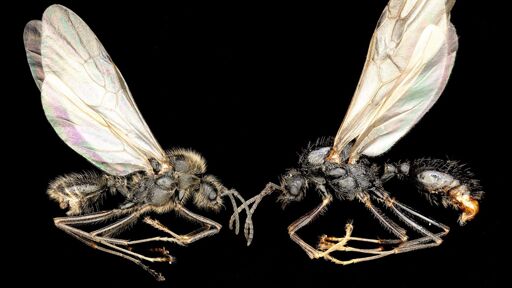Summary:
- Iberian harvester ant queens (Messor ibericus) mate with males of a different species (Messor structor), store their sperm, and produce males that are genetic clones of M. structor while retaining M. ibericus mitochondrial DNA.
- Queens produce both M. ibericus males (hairy) and M. structor-like males (nearly hairless); all colony workers are female hybrids of the two species.
- Researchers coined the term “xenoparity” for this phenomenon; it challenges traditional species concepts because two distinct species are required for the M. ibericus colony’s reproductive system.
- The relationship appears mutually beneficial—M. ibericus secures workers and spreads M. structor via cloned males—but cloned males may accumulate harmful mutations over time, risking long-term viability.
You must log in or # to comment.


